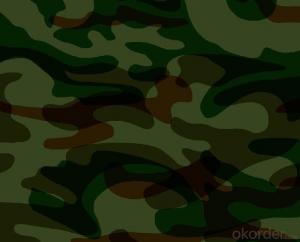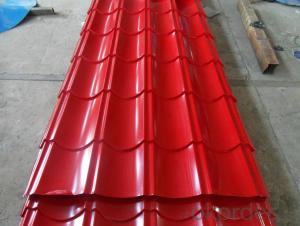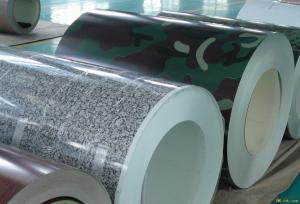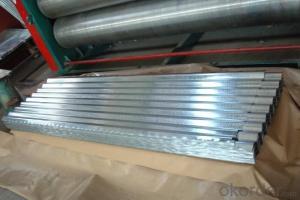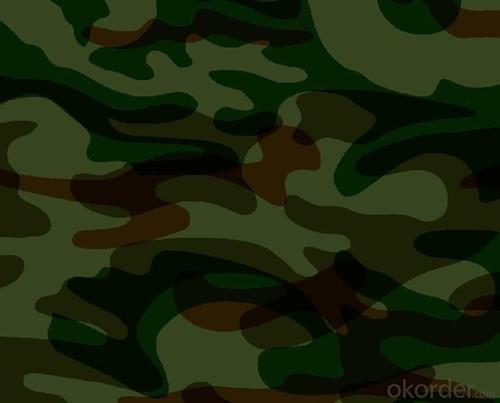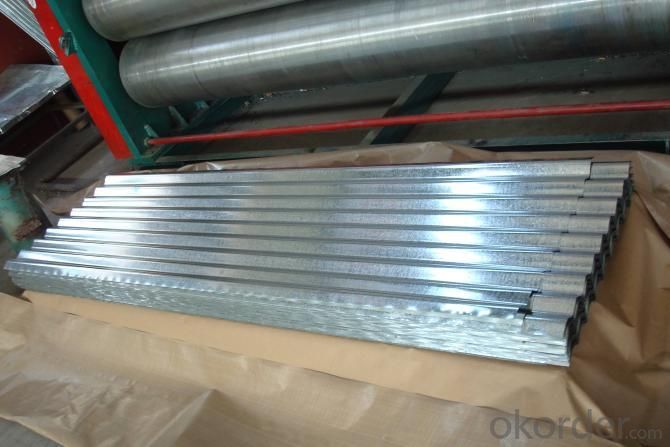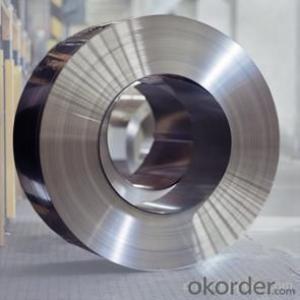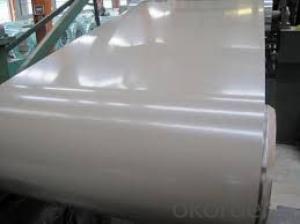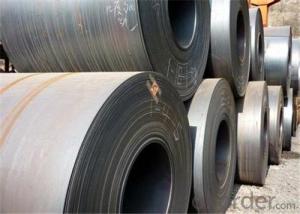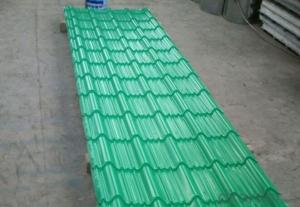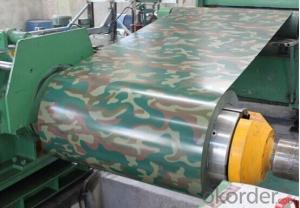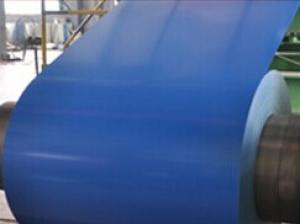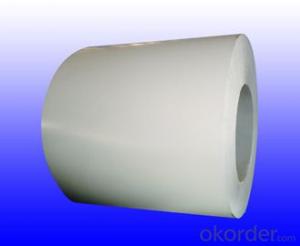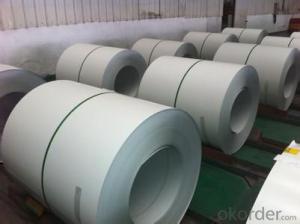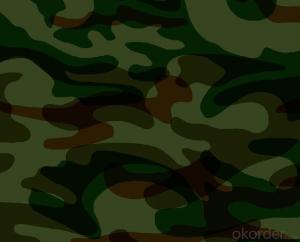Pre-Painted Galvanized/Aluzinc Steel Coil-The Hot Sale
- Loading Port:
- China main port
- Payment Terms:
- TT OR LC
- Min Order Qty:
- 50 m.t.
- Supply Capability:
- 10000 m.t./month
OKorder Service Pledge
OKorder Financial Service
You Might Also Like
1. Pre-Painted Galvanized/Aluzinc Steel Coil Description:
With GI as base material, after pretreatment (degrease and chemical treatment ) and liquid dope with several layers of color, then after firing and cooling, finally the plate steel is called pre-painted galvanized (aluzinc) steel. Pre-painted galvanized steel is good capable of decoration, molding, corrosion resistance. It generally displays superior workability, durability and weather resistance.
2.Main Features of the Pre-Painted Galvanized/Aluzinc Steel Coil:
• Excellent process capability
• Smooth and flat surface
• Workability, durability
• Excellent heat resistance performance
• High strength
• Good formability
• Good visual effect
3.Pre-Painted Galvanized/Aluzinc Steel Coil Images
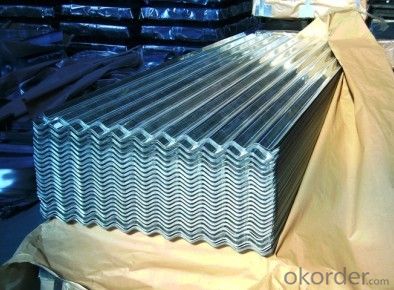
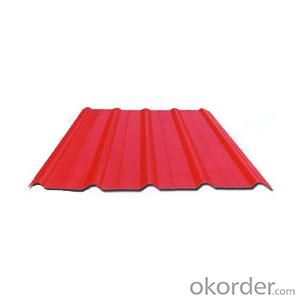
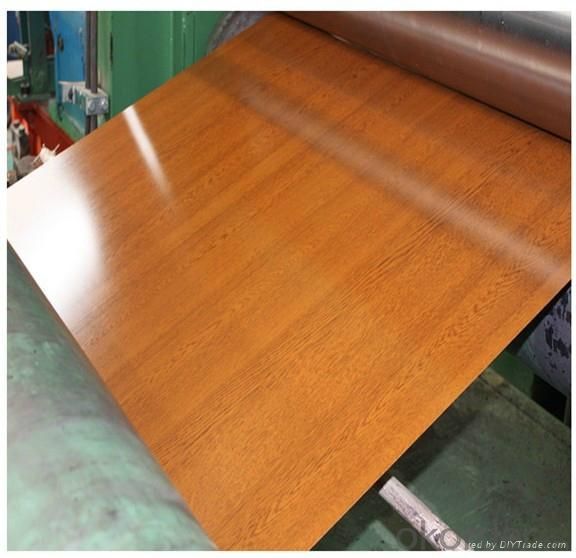
4.Pre-Painted Galvanized/Aluzinc Steel Coil Specification
Standard: AISI, ASTM, BS, DIN, GB, JIS
Grade: DX51D, DX52D
Thickness: 0.17-2.0mm
Brand Name: KMRLON
Model Number: coil
Type: Steel Coil
Technique: Cold Rolled
Surface Treatment: Coated
Application: Boiler Plate
Special Use: High-strength Steel Plate
Width: 20-1250mm
Length: customized
commoidty: pre-painted galvanized steel coil
Thickness: 0.13-4.0mm
width: 20-1250mm
zinc coating: 40-180g/m2
printing thickness: top side: 20+/-5 microns, back side: 5-7 microns
color: all RAL color
surface treatment: color coated
coil weight: 4-7 tons
coil ID: 508/610mm
packaging: standard seaworthy packing
5.FAQ of Pre-Painted Galvanized/Aluzinc Steel Coil
1. What’s the application of this product?
Roof, roof structure, surface sheet of balcony, frame of window, etc.
2. What’s the brand of the paint?
We use the best brand of all of the word—AKZO.
3. How to guarantee the quality of the products?
We have established the international advanced quality management system,every link from raw material to final product we have strict quality test;We resolutely put an end to unqualified products flowing into the market. At the same time, we will provide necessary follow-up service assurance.
4. How long can we receive the product after purchase?
Usually within thirty working days after receiving buyer’s advance payment or LC. We will arrange the factory manufacturing as soon as possible. The cargo readiness usually takes 15-25 days, but the shipment will depend on the vessel situation.
- Q: Don't ask me why, but I took my stainless steel ring and I heated it up with my gas stove. I stuck it in there til the metal turned red, and the flame which is normally blue turned orange for some reason when the metal turned red. Anyway, afterwards i cooled it off in water and now it's all discolored and it feels different. It's weighs less and it doesn't feel the same. Plus, it's ugly cause it's all black and blue. What happened? Someone help
- My fiancé got a Tungsten wedding band. It's super tough and doesn't scratch. We made sure to get an extended warranty, because those rings can't be resized and otherwise we'd have to pay for a new one. We were thinking about titanium, but it's really light and he just didn't like the feel of it. The tungsten was heavy and felt durable and manly. He also loves the color, it's darker than silver so it looks non traditional. Make sure to get a ring with a curved band for comfort, or he may not like wearing it. Platinum actually scratches easily, so don't even think of it! My fiancé's wedding band was about $250, a bit more with the warranty. Stainless steel will be cheaper, but it's not as durable or scratch resistant as tungsten.
- Q: How are steel coils used in the production of medical equipment?
- Steel coils are an essential component in the production of medical equipment as they are used to manufacture various parts and components such as surgical instruments, implants, and medical machinery. The high strength and durability of steel make it ideal for creating precise and long-lasting medical devices, ensuring the safety and reliability of the equipment used in the healthcare industry.
- Q: What are the different methods of steel coil surface cleaning?
- There are several methods of steel coil surface cleaning, including mechanical cleaning, chemical cleaning, and high-pressure water cleaning. Mechanical cleaning involves using abrasive materials or brushes to physically remove dirt, rust, and other contaminants from the surface. Chemical cleaning uses various chemicals or solvents to dissolve or loosen the contaminants, making them easier to remove. High-pressure water cleaning involves spraying water at a high pressure to dislodge and wash away the dirt and debris. These methods can be used individually or in combination, depending on the level of cleanliness required and the specific condition of the steel coil.
- Q: I am doing a experiment on mild steel soaked in sodium chlorideanyone can enlighten me about the effect of the sodium chloride in engineering term ?The mild steel specimen which I soaked in the sodium chloride has orange rust on it
- The mild steel contains a lot of Iron. The NaCl solution quickly attacks the iron content and forms rust. Over time, the solution may also cause what is called 'Chloride Cracking' of the steel. Pitting corrosion of stainless steel due to chlorides would certainly produce a rust-colored product. Passivation can be used to maintain a good corrosion resistant surface of stainless steel process vessel. There are many commercial products for this purpose. In the pharmaceutical industry, this process is often called derouging, that is to remove the buildup of iron oxides on the stainless steel process surfaces
- Q: What are the common coil diameters available for steel coils?
- Steel coils come in a range of common diameters depending on the industry and purpose. Generally, the most frequently used coil diameters for steel range from 24 inches to 72 inches. These diameters are commonly utilized in sectors like automotive, construction, and manufacturing. It should be noted that the required coil diameter might vary depending on factors such as the material's size and weight, the equipment used for coil handling, and the specific requirements of the end-use application.
- Q: Can anyone tell me what that means. I have seen it on knife blades an such. I am assuming it's a formula for the strength of the metal. who does that scale work, and please keep it simple.
- 440 is an AISI (American Iron and Steel Institute) material specification. It specifies the precise quantities of carbon and other elements present in the alloy. Here are the constituents of AISI 440 steel: Carbon - 0.6 to 0.75% Chromium - 16 to 18% Manganese - less than 1% Molybdenum - less than 0.75% Phosphorus - less than 0.04% Silicon - less than 1% Sulfur - less than 0.03% Iron makes up the remainder. AISI 440 is a heat-treatable, precipitation-hardening stainless steel.
- Q: I am trying to make a homemade fender eliminator for my motorcycle and the instructions from the site I found said to use 22 gage weld steel. I went to lowes and all they had was 26 gage sheet metal. What is the difference between the two? Is weld steel less flexible?
- Gauge is a measure of thickness. 19 Ga = 0.0418 20 Ga = 0.0359 22 Ga = 0.0299 Higher numbers are obviously thinner sheets. To my knowledge the way it works is going up five gauges means the thickness is reduced by half. For example 10 Ga. is 0.1345 in, while 15 Ga is 0.0673 in.
- Q: Can steel coils be stored in a humid environment?
- Steel coils should not be stored in a humid environment as high humidity can lead to corrosion and rust formation on the steel surface, compromising its quality and durability. It is important to store steel coils in a dry and well-ventilated area to maintain their integrity and prevent any potential damage.
- Q: Does steel have a valence number and if so, what is it?
- Steel is a mixture, so it doesn't have any valence number. On the other hand, all of the components of the steel mixture are in their elemental forms, so all the various valences are zero.
- Q: What are the common uses of cold rolled steel coils?
- Cold rolled steel coils have a wide range of common uses such as in automotive manufacturing, construction, appliances, furniture, and general engineering applications.
Send your message to us
Pre-Painted Galvanized/Aluzinc Steel Coil-The Hot Sale
- Loading Port:
- China main port
- Payment Terms:
- TT OR LC
- Min Order Qty:
- 50 m.t.
- Supply Capability:
- 10000 m.t./month
OKorder Service Pledge
OKorder Financial Service
Similar products
Hot products
Hot Searches
Related keywords
